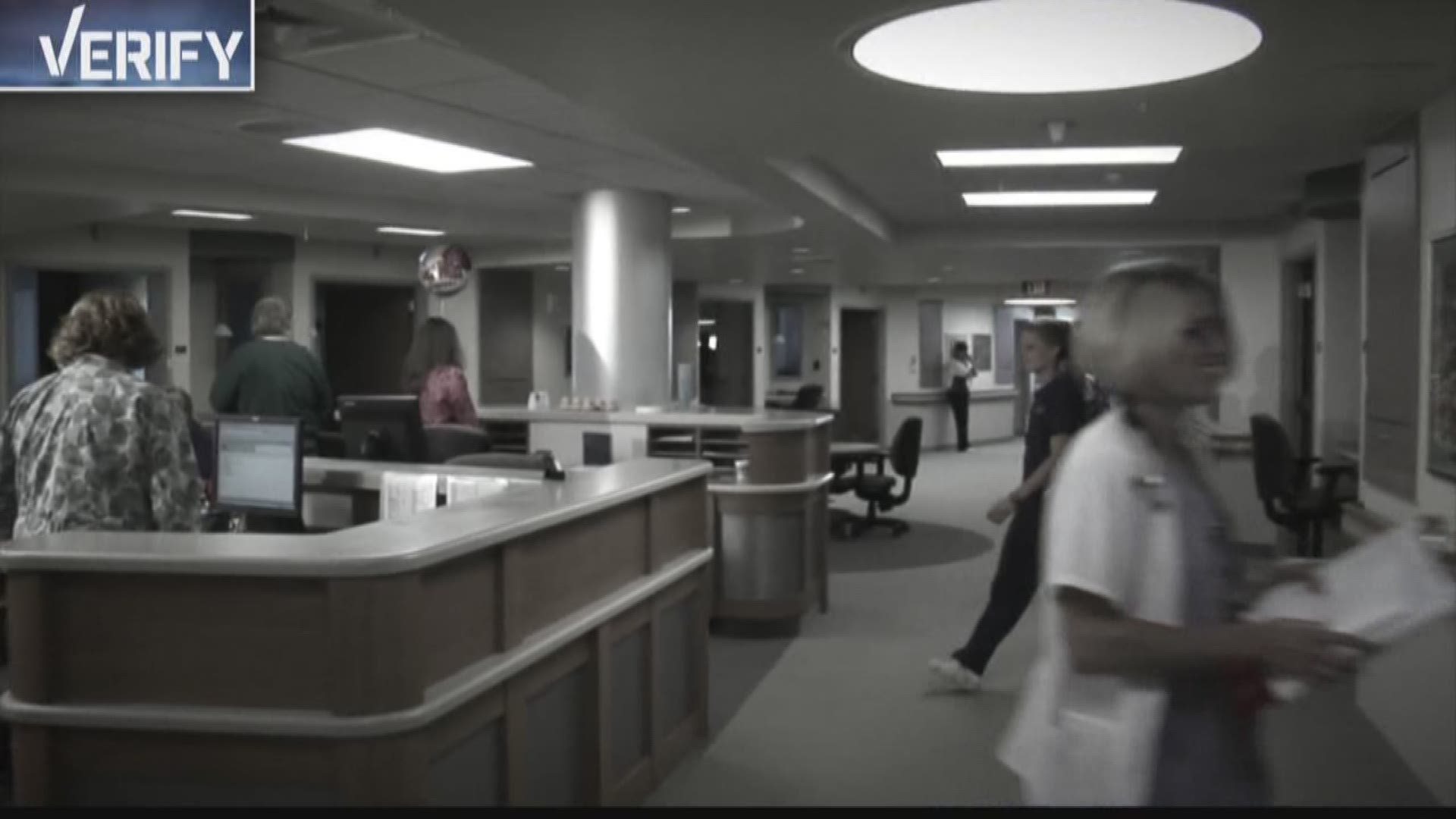SPOKANE COUNTY, Wash. — The Washington State Hospitals Association (WSHA) said at its regular briefing on Tuesday that COVID-19 hospitalizations are still on the rise, but not at as severe of a rate as previous weeks.
In Spokane, however, trends are still worrying.
According to WSHA Executive Vice President Taya Briley, Spokane County has seen a 23% increase in hospitalizations in the past week. Hospitalizations in the county have increased from about 80 to about 160 patients in the past two weeks.
This comes as hospitals statewide have faced tough times.
"Last week was an extremely tough week for all those in our state who needed access to life-saving hospital care," Briley said. "Hospitalizations were trending up, and staff continued to call out sick because they had either contracted COVID or they were having to isolate due to exposure."
Another worry for Washington hospitals - especially facilities in Eastern Washington - is the current situation in Idaho. On Monday, the Idaho Department of Health and Welfare (IDHW) activated crisis standards of care for the state's three southern health districts. It has yet to activate those standards again in the Panhandle or the North Central Health Districts.
That doesn't mean that North Idaho is out of the woods yet, according to IDHW Director Dave Jeppesen. He said cases are trending in the wrong direction, and that Omicron is different than the Delta variant. With Delta, most of the strain was on critical care resources, while Omicron is putting strain on the entire system. This comes as healthcare providers in Idaho are also feeling the impacts of a nationwide blood shortage and staffing issues caused by the current surge in case.
If current trends continue, Jeppesen said it could lead to further issues for the healthcare system in Idaho.
"The situation with the health care systems for the rest of the state remains very fragile," he said. "If current trends continue, I expect that crisis standards of care will be activated in additional areas of the state."
When crisis standards were previously put in place in North Idaho, the impacts spread all the way to Eastern Washington in the form of patient transfer requests and people crossing the border to seek medical care.
"We are concerned that crisis standards will spread north in Idaho," Briley said. "In the prior crisis stage when Idaho declared crisis standards of care, it started in the north and spread south, and Washington hospitals were definitely affected."
The hospital association said it is also placing a large order with 3M for more N95 masks. Due to supply shortages, Briley said many hospitals across Washington are operating under contingency standards when it comes to PPE, meaning that employees are using masks for an entire shift instead of changing them between patients.
Down on the Palouse, Pullman Regional Hospital reported that it wasn't treating any COVID-19 patients as of Tuesday morning. Instead, they were feeling effects caused by the strain the pandemic previously put on the healthcare system.
"We still are seeing a surge of very sick people. Not COVID patients in particular, but I do believe that we're seeing higher levels of very sick people because people have delayed care," said PRH Chief Nursing Officer Jeannie Eylar.
Eylar also said healthcare workers themselves have put off seeking medical care as they have been busy treating patients. This is being combined with the hospital also facing staffing issues caused by employees being exposed to COVID-19 or testing positive. Healthcare workers in Pullman have also been forced to stay home at times to take care of children sick with COVID-19, Eylar said.
During the briefing, Briley also said that since the vaccine was released to the public, about 90% of hospitalizations and deaths caused by COVID-19 could have been prevented if the person was vaccinated.

